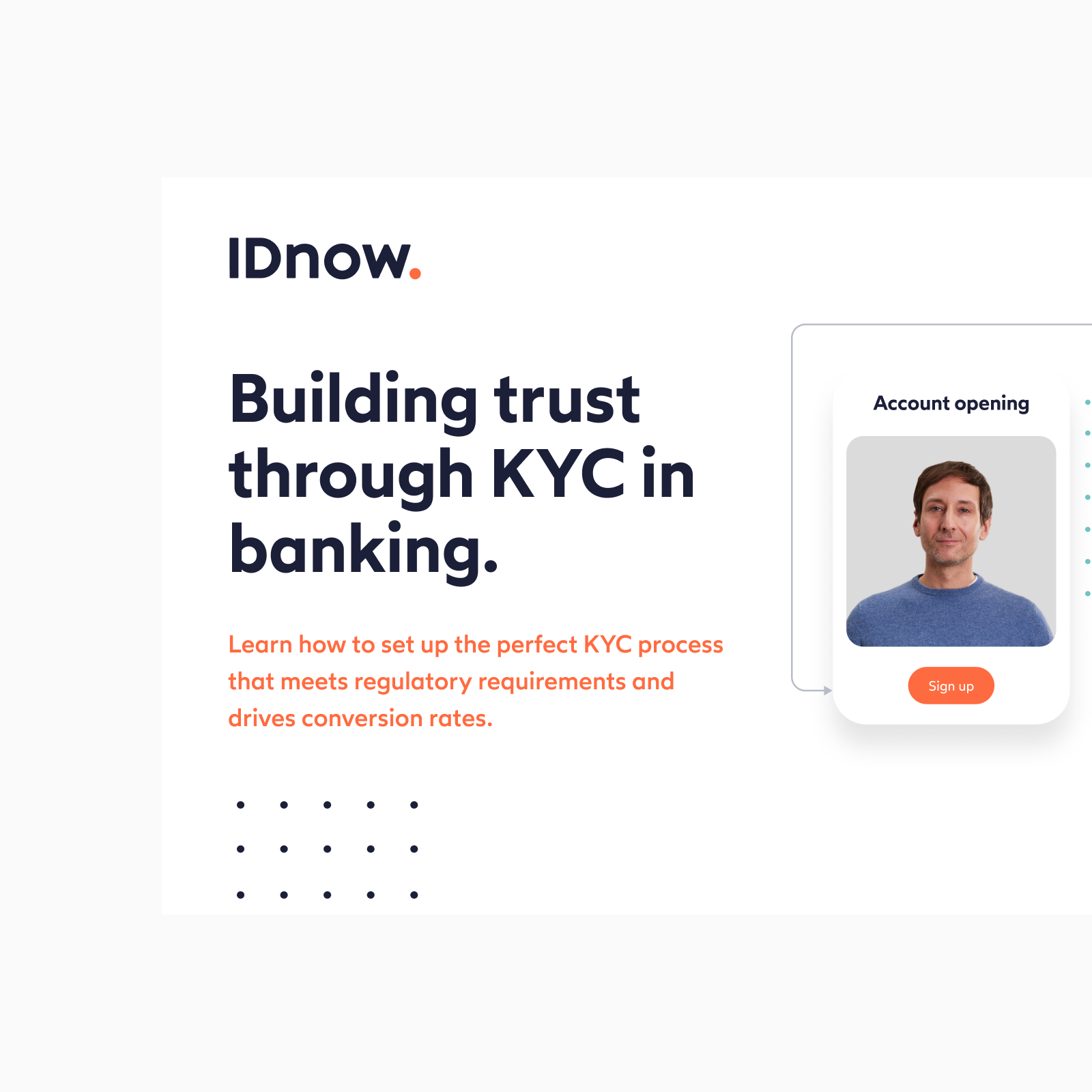| pll_language | www.idnow.io | | 365 days |
This cookie is used to remember the language selected by the user when he comes back to visit again the website by Polylang |
| cookiehub | .idnow.io | CookieHub | 365 days |
Used by CookieHub to store information about whether visitors have given or declined the use of cookie categories used on the site. |
| __hssc | .idnow.io | HubSpot | 1 hour |
This cookie name is associated with websites built on the HubSpot platform. This cookie keeps track of sessions. This is used to determine if HubSpot should increment the session number and timestamps in the __hstc cookie. It contains the domain, viewCount (increments each pageView in a session), and session start timestamp. |
| __cf_bm | .hubspot.com | Cloudflare, Inc. | 1 hour |
The __cf_bm cookie supports Cloudflare Bot Management by managing incoming traffic that matches criteria associated with bots. The cookie does not collect any personal data, and any information collected is subject to one-way encryption. |
| _gd_visitor | www.idnow.io | | 400 days |
Collects visitor data related to the user's visits to the website, such as the number of visits, average time spent on the website and what pages have been loaded, with the purpose of displaying targeted ads. |
| _cfuvid | .hubspot.com | | Session |
Used by Cloudflare WAF to distinguish individual users who share the same IP address and apply rate limits |
| __cf_bm | .files.idnow.io | Cloudflare, Inc. | 1 hour |
The __cf_bm cookie supports Cloudflare Bot Management by managing incoming traffic that matches criteria associated with bots. The cookie does not collect any personal data, and any information collected is subject to one-way encryption. |
| _cfuvid | .hsforms.com | | Session |
Used by Cloudflare WAF to distinguish individual users who share the same IP address and apply rate limits |
| __cf_bm | .hsforms.com | Cloudflare, Inc. | 1 hour |
The __cf_bm cookie supports Cloudflare Bot Management by managing incoming traffic that matches criteria associated with bots. The cookie does not collect any personal data, and any information collected is subject to one-way encryption. |
| __cf_bm | .hsforms.net | Cloudflare, Inc. | 1 hour |
The __cf_bm cookie supports Cloudflare Bot Management by managing incoming traffic that matches criteria associated with bots. The cookie does not collect any personal data, and any information collected is subject to one-way encryption. |
| _cfuvid | .vimeo.com | | Session |
Used by Cloudflare WAF to distinguish individual users who share the same IP address and apply rate limits |
| __cf_bm | .vimeo.com | Cloudflare, Inc. | 1 hour |
The __cf_bm cookie supports Cloudflare Bot Management by managing incoming traffic that matches criteria associated with bots. The cookie does not collect any personal data, and any information collected is subject to one-way encryption. |
| _cfuvid | .files.idnow.io | | Session |
Used by Cloudflare WAF to distinguish individual users who share the same IP address and apply rate limits |
| __cf_bm | .hs-scripts.com | Cloudflare, Inc. | 1 hour |
The __cf_bm cookie supports Cloudflare Bot Management by managing incoming traffic that matches criteria associated with bots. The cookie does not collect any personal data, and any information collected is subject to one-way encryption. |
| __cf_bm | .hsadspixel.net | Cloudflare, Inc. | 1 hour |
The __cf_bm cookie supports Cloudflare Bot Management by managing incoming traffic that matches criteria associated with bots. The cookie does not collect any personal data, and any information collected is subject to one-way encryption. |
| __cf_bm | .usemessages.com | Cloudflare, Inc. | 1 hour |
The __cf_bm cookie supports Cloudflare Bot Management by managing incoming traffic that matches criteria associated with bots. The cookie does not collect any personal data, and any information collected is subject to one-way encryption. |
| __cf_bm | .hs-analytics.net | Cloudflare, Inc. | 1 hour |
The __cf_bm cookie supports Cloudflare Bot Management by managing incoming traffic that matches criteria associated with bots. The cookie does not collect any personal data, and any information collected is subject to one-way encryption. |
| __cf_bm | .hs-banner.com | Cloudflare, Inc. | 1 hour |
The __cf_bm cookie supports Cloudflare Bot Management by managing incoming traffic that matches criteria associated with bots. The cookie does not collect any personal data, and any information collected is subject to one-way encryption. |
| __cf_bm | .hsappstatic.net | Cloudflare, Inc. | 1 hour |
The __cf_bm cookie supports Cloudflare Bot Management by managing incoming traffic that matches criteria associated with bots. The cookie does not collect any personal data, and any information collected is subject to one-way encryption. |
| __cf_bm | .hs-sites-eu1.com | Cloudflare, Inc. | 1 hour |
The __cf_bm cookie supports Cloudflare Bot Management by managing incoming traffic that matches criteria associated with bots. The cookie does not collect any personal data, and any information collected is subject to one-way encryption. |
| __cf_bm | .hubspot.net | Cloudflare, Inc. | 1 hour |
The __cf_bm cookie supports Cloudflare Bot Management by managing incoming traffic that matches criteria associated with bots. The cookie does not collect any personal data, and any information collected is subject to one-way encryption. |


